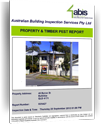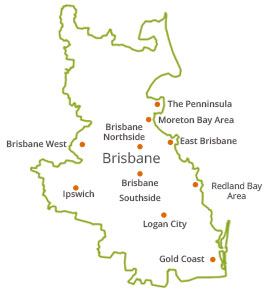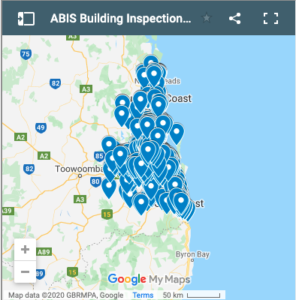Moving house can seem daunting. The following should help you keep track of tasks essential to a well organised and stress-free move.
Begin by booking a firm date for moving. Then choose your removal method and book it to give your removalists as much notice as possible.
Consider
- Does your new house allow access for large appliances and pieces of furniture?
- How much does it cost to hire a truck?
- Do you have the time?
- Is there a lift and do you need to book it?
4 – 6 Weeks Before Your Move
- Redirect your mail & change your address
- Start to contact family & friends who need your new address
- Get rid of unwanted items through charity bins or garage sales
- Use the food in your freezer and cupboards
- Start cleaning out cupboards and packing things you will not need
- Check your insurance policy – will it cover the move?
- Make a list of items you’ll need available for the moving day
- Collect packing boxes and materials from supermarkets or organise to buy or hire packing cartons from a removalist
- Contact your landlord/real estate agent if you are renting to advise in writing, of your intention to move and arrange for the refund of your bond upon final inspection.
- Pet removals: Do you need to buy or hire a special carrier box or would you prefer to use the services of a company who specialises in the transportation of animals?
- Start a central file for your move documents
- Book your packing & unpacking service
- Create a floor plan of your new home and plan placement of furniture
- Enrol children in local schools and kindergartens in your area
- Arrange child care on packing and uplift days if necessary
- Collect your family’s dental and medical records or request transfer to your new practitioners
- Contact your local council about relevant facilities and permits you need e.g. parking
- Have a thorough clean out of the garage, garden shed and under the house
2 Weeks Before Your Move
- Confirm arrangements in writing with your removalist / hire truck company / storage facility / family and friends.
- Arrange for disconnection at your old home and reconnection at your new home of essential services such as gas, electricity, telephone, internet provider allowing up to 5 working days to connect or disconnect a utility
- Cancel newspaper and milk delivery, cleaning, ironing, gardening, pet grooming and other local services
- If renting, arrange for carpet cleaners to come in after you’ve moved your furniture
- Begin to rundown supplies of canned, frozen and perishable foods
- Book professional cleaners if necessary
- Arrange for new locks to be fitted to the new house
- Ensure your new residence is insured whilst awaiting settlement
- Dispose of garden chemicals, paints, fuels and other flammable items but do not tip poisons down the drain
- Turn off the gas from the BBQ
- Disassemble outdoor items e.g. swing sets, cubby house and place all bolts and screws in an envelope for safekeeping
Start packing cartons: Always pack lighter items in larger boxes and heavier items in smaller boxes. Use clean white paper for wrapping. Do not use newspaper which may leave black newsprint on your possessions and make cleaning difficult when unpacking.
Number and label everything carefully on the outside of the boxes, making note on your inventory which items have gone into which box. Keep items from each room in the same box so when unpacking, the room contents just have to put away. Complete packing or at least nominate boxes for items that will not be packed until the last minute.
Create a separate valuables carton which should contain all those easy to misplace and hard to find items such as TV and stereo remote controls, bed legs, self supports, keys to furniture cabinets and manufacturer’s instructions for reassembly of items.
Throw out as much as you can at your old home so you have to pack less and don’t need to start at your new home by sorting through everything. There’ll be less to move so it’s faster and cheaper.
1 Week Before Your Move
- Make a list of things to do on moving day
- Remove all batteries from battery powered items going into storage
- If taking special light fittings that need to be disconnected by an electrician organise this
- Drain the fuel from the lawnmower and whipper snipper
- Establish cut-off or final reading dates for electricity water phone and gas
- Collect anything outstanding such as lay-bys, prescriptions, dry-cleaning and shoes
- Gather all keys and collect spares from family and friends
- Dismantle all prefabricated furniture ready for transport, put all bolts and screws and other small attachments into a small self sealing bag, and tape to the base of the item
3 Days Before Your Move
- Clean the oven
- Return items you’ve borrowed including books, videos, and DVDs
- Collect instruction manuals for stove, dishwasher, and security system for the new owner
- Advise neighbours of your time of move so driveways are not blocked
2 Days Before Your Move
- Organise a bank cheque or correct money for the removal crew
- Pack luggage or things you will need immediately after moving
- Leave your forwarding address and contact number for the new owners/occupants
- If the house will be vacant for a while notify the police and neighbours
- Prepare any items requiring dismantling
The Day Before Your Move
- If renting, conduct a walk through before delivering furniture documenting the state of the house
- If you are having things professionally packed this will happen today as per your instructions
- Empty, defrost and thoroughly towel dry your fridge and freezer, wipe over the inside using vanilla essence to assist in the prevention of odours, and place a plain white toilet roll in the fridge and freezer compartments to absorb any moisture
- Dispose of food items that are open and will spoil
- If possible, precook a meal which can simply be heated up
- Empty and hose all rubbish bins and compost bins
- Drain washing machine hoses and leave to dry overnight
- Disconnect stereo equipment and computer equipment and tape all wires and leads
- Leave the vacuum cleaner out as you may want to clean up after the furniture is moved out
- Get a good night sleep
Moving Day – Get an Early Start
- Make or confirm key collection arrangements
- Pack a small box of items you’ll need in the first 24 hours in your new home, including cheque book, wallet, mobile phone and recharger, toilet paper, tissues, matches, garbage bags, light bulbs, detergent and other cleaning items, medicines, soap, and towels.
- Pack another box with kitchen essentials for the move day
- Do a final check of all storage areas
- Check off all furniture and cartons against your inventory as they go into the van or truck
- Turn off electricity at the meter
- Check that all doors and windows are securely locked as you leave
- Be sure to keep your valuables, personal effects, and important papers with you
- Ensure each person in your household has packed a bag containing clothes, toiletries and other personal items to take with them to see them through the first couple of days when boxes are still being unpacked.
- Check every nook and cranny to make sure you haven’t left anything behind.
- Disconnect the washing machine and dishwasher and allow to drain if necessary
- When the removalist arrives ensure they know where to park
- If you can’t be there appoint an agent to act on your behalf. Walk around the house with the removalist to show them exactly what you want done
- Show the removalist what you want as soon as you arrive at your new house these items can be loaded last in order to be unloaded first
- If you still have pets at home make sure they are confined
- To avoid injury or accidents ensure children are not in the removalist’s way
- Place all items being transported by yourself securely in boot of your car out of sight
- If renting, keep keys in the car ready to be delivered to the agent as you leave
- Unpack bedding and make up beds as soon as possible
Your New Home
- Have removalists position heavy furniture in each room
- If your goods are coming from storage, interstate or overseas, check the inventory carefully before signing off once satisfied all items are accounted for
- If concerned about security, arrange to have all locks changed
- Check that gas, power and telephone are connected and the hot water pilot is on
- When appropriate, speak with your immediate neighbours
Moving With Children
For some children leaving behind the comfort and security of a home can be upsetting and may also bring back unpleasant memories of previous moves. Talk to your children about the move to get them used to the idea well in advance. Children who are anxious about moving may show signs of depression, withdrawn behaviour or tantrums as the day approaches. It is important for them to let you know how they are feeling. On moving day, young children should be kept out of harm’s way. If possible arrange to have a babysitter for the day and keep their favourite books or toys close by.
Pets
Make sure your pet has a thorough check and is up to date with vaccinations. Keep your pets records in a safe place so you can produce them when needed. If your pet is on medication ask your vet for enough to cover the settling in period before you find a new practice.
When moving, make preparations for your pet that may become anxious and begin to fret when they see you packing up. This anxiety can lead to strange behaviours such as leaving wet patches in inappropriate places. On moving day keep your pet in a quiet place with a keep out sign on the door such as the laundry with food and water and a litter tray. To prevent them disappearing, your pet should be micro-chipped and fitted with a new sturdy ID tag with your mobile number etched into it. Take a photograph of your pet just in case.




